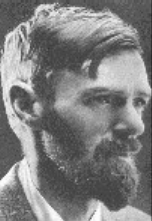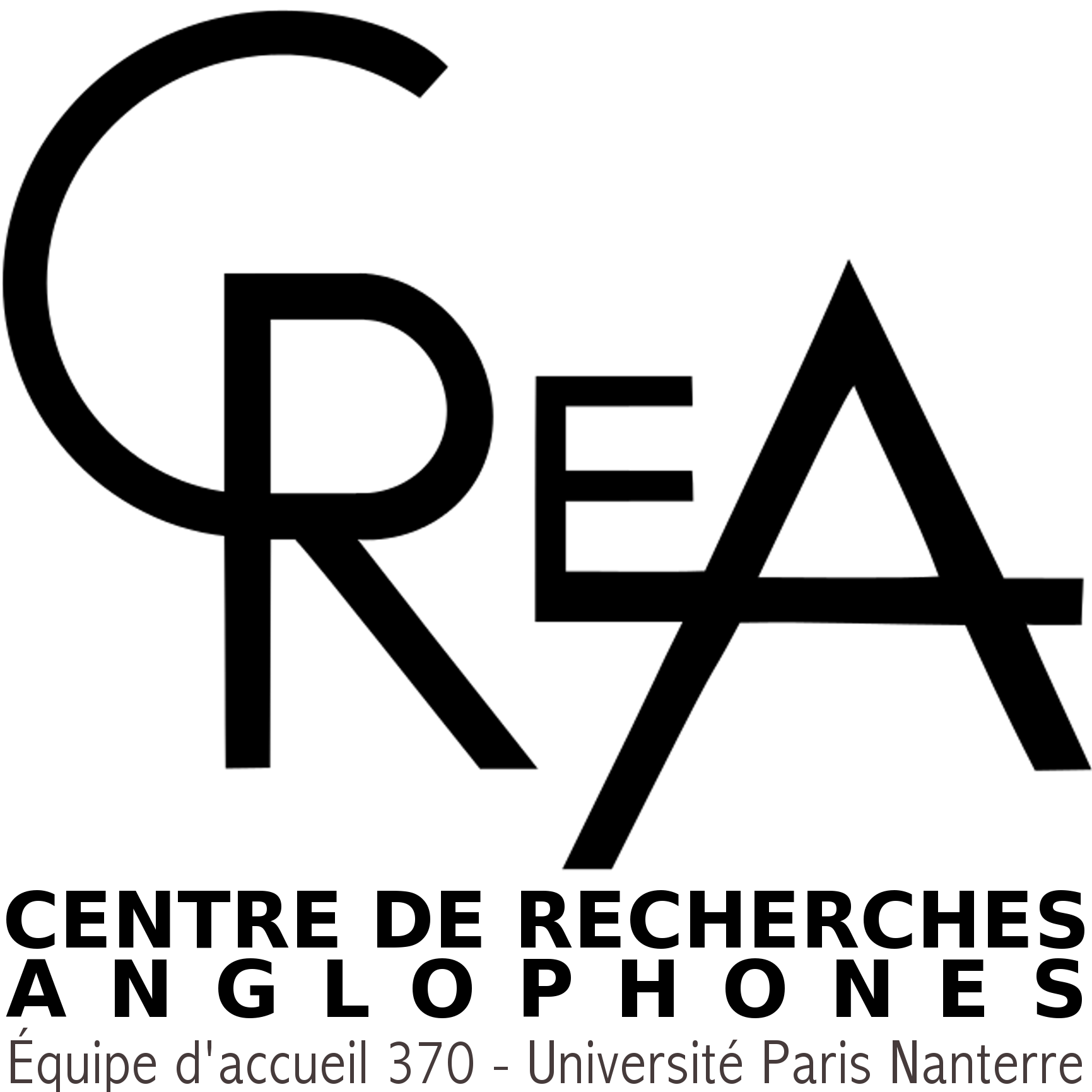- Libellé inconnu,
33ème Colloque international D.H.Lawrence

33ème Colloque international D.H.Lawrence organisé par le groupe Études Lawrenciennes rattaché au Centre de Recherches Anglophones - CREA EA 370 de l’Université Paris Nanterre. Ce colloque international porte sur le thème " D.H.LAWRENCE AND THE ANTICIPATION OF THE ECOLOGICAL TURN "
du 4 avril 2019 au 6 avril 2019
D.H.Lawrence has often been viewed as a post-romantic nature writer. Instead of looking back towards the 19th century writers who influenced him, we propose in the 2019 Conference to consider how his literary practice and the philosophy that underlies it herald the ecocritical turn of the late 20th century. Broadly speaking, ecocriticism focuses on the study of the relationship of man with the natural environment, doing so from an interdisciplinary point view. It is concerned both with the protection of the environment and the destiny of man in the geological era called the Anthropocene. Ecocriticism is a broad term, pointing to innumerable trends: ecopoetry, ecophilosophy (see Guattari’s ecosophy), ecoethics, ecoethology, ecopolitics, ecofeminism etc. We know that Lawrence very early in his life became aware of the damage caused to the world we live in by man’s activities.
We would like therefore to analyse what the concept of nature means for him, and how the attention he pays to the non-human and to the material world affects his art and connects both with his personal ethics and his form of spirituality. We will study the both extent and the limits of Lawrence’s “green thinking” in all areas, including his reflection on the man/animal dialectics, on what it means to be a man, his vision of man and woman in society, his criticism of waste and of our materialist society, his meditation on “the silent great cosmos” and his special brand of ecosexuality.
Bruno Latour, in a short book entitled Où atterrir? Where can we Land ? (La Découverte, 2017), writes: “No corporation would have spent a dollar to fabricate ignorance relative to the Higgs boson. Denial of climate change is however an entirely different matter and the funds flow in…. In other words, the sciences of nature-as-process cannot adopt the same, somewhat haughty and disinterested, epistemology as the sciences of nature-as-universe…”
Lawrence invites a mode of critical engagement that in no sense subscribes to the “haughty and disinterested procedures” which, for (too?) long, defined the reading of modernist texts. Lawrence can therefore be read in relation to the preoccupations of “our times”. Just as Lawrence was prophetic in his anticipation of troubles ahead, our current situation enables us to read backwards to arrive now at a fuller appraisal of some of the underlying truths of his writing. That Lawrence as a miner’s son, born into the English midlands coalfields, should have grasped the subterranean conditionality of apparent wealth and power, industry and empire, is now something that appears both logical and visionary. He simply knew how to tune his comprehension to the pulse of “nature-as-process”. The ecocritical turn in our reading of Lawrence can be an apocalypse beyond the biblical or Pauline tones in evidence in The Rainbow, a novel now closer to us insofar as it was already a world away from any Ibsenite space of domestic alienation or fulfillment. And it is perhaps also a turn away from the provincialities of the bourgeois novel of relations between the sexes. This call for papers is an invitation both to read our present moment and to read Lawrence, in a way that is attentive to the fate of the “universe-as-process”, able therefore o adopt, in relation to the Lawrentian opus, a critical approach neither “disinterested” nor “haughty”.
Programme :
Jeudi 04 avril9.00- Registration and welcome
9. 35 – 10.00- JONATHAN LONG, UK.
The Developing Reception of D H Lawrence’s Sketches of Etruscan Places –A Text for Ecocriticism.
10.00 – 10.25- SUSAN REID, University of Northampton, UK.
Soundscapes and Birdsong towards an Eco-musicological Reading of D. H. Lawrence
10.45- 11.10- LAURA RYAN, University of Manchester, UK.
A Lover of Nature: Lawrence and Eco-sexuality
11.10-11.35- CARRIE ROHMAN, Lafayette College, USA.
D. H. Lawrence’s Bio-aesthetics: Dandy Animals and Creatural Capers
11.35 -12.00- CATHERINE BROWN, New College of the Humanities, London, UK
Lawrence and the Anticipation of a Vegan World
***
2.30 – 2.55- PAUL POPLAWSKI, Austria.
A Green Modern Lover in Notts.
2.55 – 3.20- FIONA FLEMING, Université Paris Nanterre,
Dialectical Relations between Humans and Non-Humans in D. H. Lawrence and Thomas Hardy
3.20- 3.45- SHIRLEY BRICOUT, Université de Montpellier III
Up-ending the Telescope: D. H. Lawrence as Eco-Critic and Birdwatcher
4.05 – 4.30- ELISE BRAULT-DREUX, Université de Valenciennes,
Smells and Scents in D.H. Lawrence’s Poetry: A Mode of Being in Nature
4.30- 4.55- SARAH BOUTTIER, Ecole polytechnique, Université Paris-Saclay,
Non-human Nakedness
Vendredi 05 avril
9.15- 9.40- TERRY GIFFORD, Bath Spa University, UK / Universidad de Alicante, Spain.
Organic Metaphor or Reverse Agency in The Rainbow?
9.40-10.05- BENJAMIN BOUCHE, Université Paris Nanterre,
From the Subject to the Environment, a Reading of Lady Chatterley's Lover
10.05-10.30- MARIA TREJLING, Stockholm University, Sweden.
Ursula and the Demonic Horses
10.50- 11.15- MICHAEL BELL, University of Warwick, UK,
The Tree of Life: D. H. Lawrence, Peter Wohleben and Richard Powers.
11.15- 11.40- HOWARD BOOTH, University of Manchester, UK
D.H. Lawrence, Adorno and the Politics of Nature: Birds, Beasts and Flowers and Kangaroo
***
2.00- 2.25- MARINA RAGACHEWSKAYA, Minsk State Linguistic University, Belarus
Horses, Women, Storms and More: the Dialogics of the Human and Non-Human in St Mawr
2.25- 2.50- STEFANIA MICHELUCCI, University of Genoa, Italy
A Sanctuary Made of Silence and Aristocratic Trees: D.H. Lawrence’s Eco-provocative Remote England
3.10-3.35- MARIE GERALDINE RADEMACHER, Université de Tokyo, Japan.
“I believe our civilisation is going to collapse”: Early Ecological Thinking in D.H. Lawrence’s Lady Chatterley’s Lover
3.35 – 4.00- SOHA EL-SAMAD,The Lebanese University, Lebanon
Lawrence’s “Eco-jouissance:” between Ethical Responsibility and Irresponsibility
4.00-4.25- JANE COSTIN, Independent scholar, UK
“apples that aren’t very appley”: the Place of the Non-Human in a New Morality.
Samedi 06 avril
9.15-9.40- HOLLY LAIRD, University of Tulsa, USA.
An Ecology of Nature and Machine: Lawrence’s Early Poetry
9.40-10.05- JEFF WALLACE, Cardiff Metropolitan University, UK
A Question Concerning Technics: D.H. Lawrence’s ‘Education of the People’
10.25-10.50- PETER FJÅGESUND, University of South Eastern Norway
The King in Exile: Ecocriticism, Lawrence and Animals
10.50-11.15- THERESA MAE THOMPSON, Valdosta State University, USA
Impure Alterity: Lawrence’s sghembo bat
11.15-11.40- MELANIE LEBRETON, Université de Rennes 2,
Lawrence and the Poetry of Humanimality
2.00-2.25- JOYJIT GHOSH, Vidyasagar Universsity, India
The Face of the Other: Reading a Selection of Animal Poems by D.H. Lawrence
2.25- 2.50- JOANNA JONES, University of Manchester, UK.
if it is the end, then we are of the end - Fleurs du mal, if you like’: Lawrence, Baudelaire, and dissolution
3.10-3.35- SARAH KATRIB, Formatrice à l’ESPE, Université de Strasbourg,
« yet the plants rise again » : The Powerful Fragility of Nature in Lawrence’s Anthropological Reflections
3.35-4.00- CLAUDIA ROSENHAN, University of Edinburgh, UK.
The White Peacock –Energy F/flows through the Environment
Organizers :
- Cornelius Crowley
- Ginette Roy
Retrouvez le programme en pièce jointe

Mis à jour le 25 septembre 2023
Contact :
Fichier joint
- 2019 33e colloque DH Lawrence.docx DOC, 18 Ko
Plus d'informations :
Several numbers of the journal are now on line (41 to 48, number 49 forthcoming)












